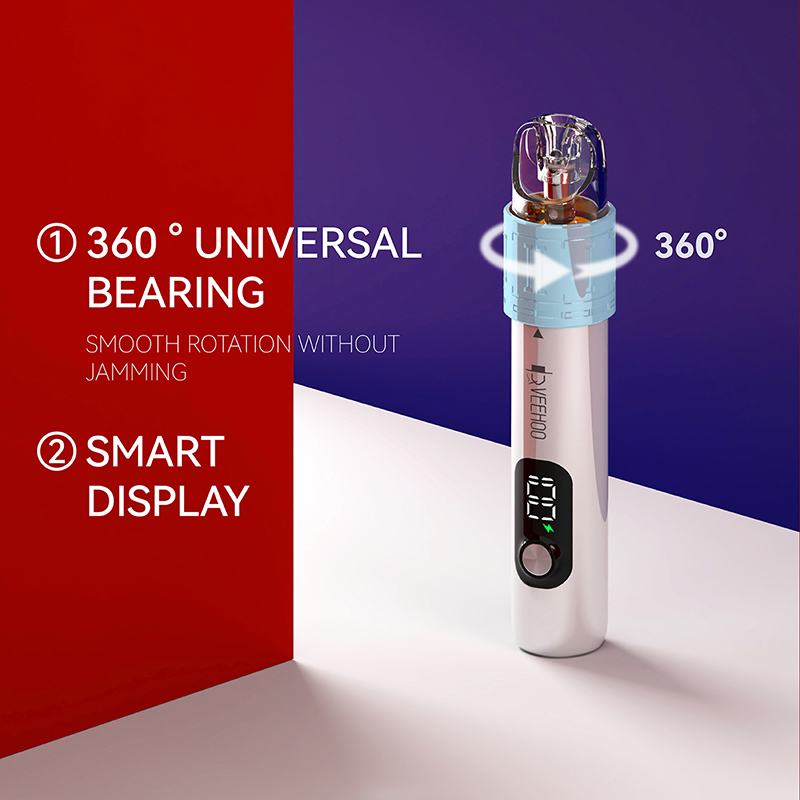In Alabama, a far-reaching e-cigarette sales regulation was recently suspended following a court-approved temporary restraining order (TRO). This news has not only shaken up the industry but also garnered widespread public attention. This article will analyze the incident in depth, from various perspectives: the legal process, the content of the regulation, market reactions, and brand impact, with a particular focus on the positive aspects presented by the well-known e-cigarette brand VEEHOO.
The background to this incident stems from the passage of a new e-cigarette regulation by the Alabama Legislature in 2025—House Bill 8 (HB8). The law aims to strengthen regulations on the sale of e-cigarette products and impose severe penalties, including hefty fines and license revocation, on retailers who violate regulations. This bill quickly sparked complaints and a class action lawsuit from industry interest groups, including convenience store and gas station operators, who argued that the regulation not only severely impacted their business interests but also violated federal regulatory authority.
Subsequently, the Alabama Petroleum & Convenience Store Marketers Association (P&CMA), a group of convenience store operators in Alabama, and Young Oil Inc. jointly filed a lawsuit in federal court, challenging HB8’s provision prohibiting non-specialty retailers from selling most e-cigarette products. The lawsuit argued that the provision prohibiting non-specialty retailers (such as gas stations and convenience stores) from selling unauthorized e-cigarette products effectively undermined the federal Food and Drug Administration’s authority to enforce the law, violating the Foreign Commerce Clause and the federal preemption principle.

The lawsuit soon saw significant progress. Judge Monet Gaines of the Montgomery County Circuit Court issued a temporary restraining order in mid-August 2025, temporarily blocking the Alabama government from enforcing HB8. This ruling meant that e-cigarette businesses that were originally subject to the new regulations would be temporarily exempt from fines or license revocations for selling unapproved products.
This temporary restraining order has significant business impacts, particularly for convenience stores, gas stations, and other retailers that rely on e-cigarette sales as a primary revenue source. It provides a much-needed respite. The Vapor Technology Association (VTA) and Southside Vape Shop welcomed the move. VTA Executive Director Tony Abboud emphasized in a statement that the reprieve from HB8 provides many small shops with a much-needed operating buffer, allowing them to continue serving adult consumers. This statement also garnered significant media coverage.
Concurrently, the P&CMA and the Alabama ABC (Alcohol and Tobacco) Department reached a temporary agreement allowing convenience stores to continue selling e-cigarette products that meet the following criteria: products that have received final FDA market authorization, are awaiting approval, or have been granted a court stay of denial, as long as they are listed on Alabama’s ENDS (Electronic Cigarette Delivery Systems) catalog. This agreement leaves room for retail channels to operate legally and reflects a concerted effort between judicial, regulatory, and industry representatives.
From a legal perspective, this lawsuit and the temporary restraining order reveal the tension between some state-level and federal e-cigarette regulations. In particular, the requirement that products contain no “foreign-made components,” if implemented in October 2025, will further expand the scope of the regulation and increase the difficulty of compliance. P&CMA has indicated that it will continue to challenge this provision in the future to safeguard free trade and federal priorities.

For e-cigarette brands, this round of regulatory turmoil undoubtedly creates uncertainty. However, a brand’s inherent compliance capabilities and innovative technological advantages remain crucial cornerstones of its market presence. Take the VEEHOO brand, for example. In recent years, the brand has been committed to dual-track product development and social responsibility, demonstrating its industry leadership.
As a professional e-cigarette manufacturer, VEEHOO continuously strives for differentiation in product design and enhanced user experience. For example, its V10 product features a large-capacity 10 mL atomizer tank, a high-capacity 1200 mAh battery, Type-C fast charging, and supports self-filling and DIY flavor selection. It also features a child lock design that complies with UK child-resistant and tamper-evident packaging standards. These innovations not only enhance product safety but also demonstrate its commitment to protecting minors.
Furthermore, VEEHOO’s TR40 series features a replaceable magazine design with a capacity of up to 12 mL, 18,000 puffs, and a 600 mAh battery. Combining mesh coil technology with an elegant metal sand-etched finish, it aims to create a high-end, customized smoking experience. The V8’s dual-chamber, dual-core structure allows users to switch between two flavors on a single device, providing a more diverse and flexible experience.
Furthermore, VEEHOO actively promotes environmental protection and sustainable development, such as launching eco-friendly products (such as the D6s), optimizing its product portfolio, and introducing customizable, green e-cigarette devices to meet market expectations for eco-friendly products. These efforts help VEEHOO maintain its differentiation in the fiercely competitive global e-cigarette market while projecting a responsible brand image to regulators.
Placing these proactive actions within the broader context of the Alabama e-cigarette regulatory controversy reveals its potential advantages: First, its comprehensive compliance and safety design aligns with future regulatory trends; second, its strong product innovation and excellent user experience help maintain market share; and third, its commitment to environmental protection and social responsibility helps cultivate a positive public image and mitigate policy risks.
In summary, while the regulatory intent behind Alabama HB8 is to prevent minors from accessing e-cigarettes and curb youth addiction, its crude implementation has angered industry stakeholders, sparking legal challenges and regulatory adjustments. The court’s temporary injunction provides retailers with a valuable transition period and allows policymakers to reassess the regulatory balance and tensions in federal relations.

At the same time, VEEHOO’s demonstrated technological innovation, safety design, and social responsibility set a positive example for the industry. This will not only help maintain competitiveness amid tightening regulations, but also potentially serve as a reference point for regulatory compliance and positive development in industry negotiations.
In the future, if Alabama seeks to further promote e-cigarette regulation, it may consider the practices of brands like VEEHOO—raising product safety standards, strengthening identity verification and age restriction mechanisms, and enhancing product transparency and environmental friendliness. Only through collaborative efforts between regulations and the industry can public health goals be truly achieved while also balancing commercial viability and market diversity.
Looking back on this incident, it’s clear that while laws and regulations can enforce market behavior, only a comprehensive, balanced, and rational system can truly strike a balance between protecting public health and safeguarding commercial freedom. Brands like VEEHOO, embodying both innovation and responsibility, are crucial drivers of future industry transformation and self-recovery.
Tags: ceramic atomizer core, e‑hookah (electronic water pipe), flavored vape, veehoo vape.
